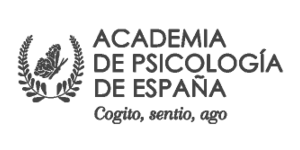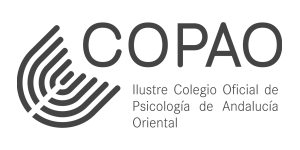Speaker

NURIA VITA
UNIVERSITY OF LLEIDA. SPAIN
Psychologist with a Master’s degree in General Health Psychology from the University of Lleida. She holds a PhD from the same university (2023) with her thesis “Conectar Jugando: Executive Functions Training through Modern Board Games in Primary Education.”
Since 2018, I have collaborated with the NeuroPGA research group at the University of Lleida, currently the SGR group (021SGR01432 Neuropsychology, Methodology, Individual Differences, and Linguistic Processes). I specialize in the use of modern board games for executive function training in the school environment, although I have also participated in projects aimed at diverse populations and the development of serious games for psychoeducational purposes. After completing my doctorate, I combined teaching at the University of Lleida as an associate professor and the International University of Valencia (VIU) as thesis director for the Master’s Degree in Special Educational Needs and Early Childhood Care, researching in the NeuroPGA group, and providing clinical practice at an association for people with physical disabilities (ASPID). At ASPID, I was head of the Neuroprevention Unit, giving talks and workshops to healthy older adults, and a psychologist at the Candi Villafañé Day Center, providing assessment and intervention duties for adults with physical disabilities.
I am currently a postdoctoral researcher at NeuroPGA (UdL), part of the Brain in Game scientific and technical service (UdL), an associate professor in the area of Basic Psychology in the Bachelor’s Degree in Psychology and Master’s Degree in General Health Psychology (UdL), and thesis director for the Master’s Degree in Neuropsychology and Education at the International University of La Rioja (UNIR). I am also a member of the governing board of the Lleida branch of the Official College of Psychology of Catalonia (COPC), I coordinate the Working Group on Playful Practices in Psychology (COPC Lleida), and I am a member of the Ment Lúdica Association of Lleida, which organizes the Ment Lúdica recreational and educational workshops at the University of Lleida.
HOW TO APPLY BOARD GAMES IN PSYCHOLOGY?
SOME TIPS FROM DAILY PRACTICE
In recent years, there has been an increase in research that includes board games as a working tool for children and adolescents.
Among the various recent publications we have found, there is research that suggests they could be beneficial at the cognitive, educational (Vita-Barrull et al., 2023, 2024), socio-emotional, and clinical symptom levels (Estrada-Plana et al., 2019). However, research and clinical practice must go hand in hand (Boaz et al., 2011).
The objective of this roundtable is to present different health promotion scenarios and clinical interventions where board games could be used from the perspective of child and adolescent psychology, based on current scientific research and offering practical resources from the clinical field.
This roundtable will present clinical case studies and innovative therapeutic and educational approaches, supported by current scientific evidence on board games. Professionals in neuropsychology, child and adolescent clinical psychology, and educational psychology will present how to use modern board games to promote psychological well-being in the secondary school classroom, social inclusion in the primary school classroom, neuroeducational interventions for neurodevelopmental disorders, and the development of socioemotional skills in child and adolescent clinical psychology. This monograph aims to convey the importance of implementing playful interventions for health promotion and clinical interventions that are scientifically supported and adapted to professional reality.
Future research is needed to further expand the scientific literature on the psychological use of board games.













